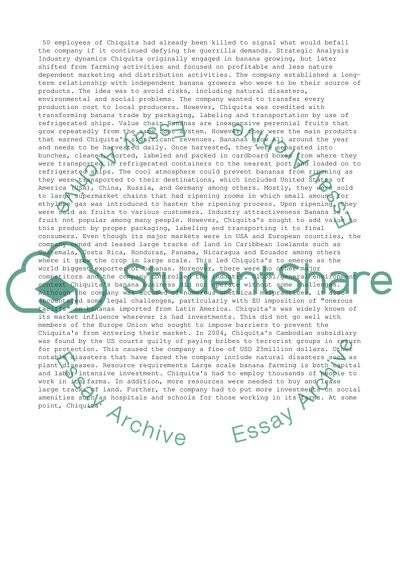Cite this document
(“Blood banana: Chiquita in Columbia Research Paper”, n.d.)
Blood banana: Chiquita in Columbia Research Paper. Retrieved from https://studentshare.org/business/1488341-blood-banana-chiquita-in-columbia
Blood banana: Chiquita in Columbia Research Paper. Retrieved from https://studentshare.org/business/1488341-blood-banana-chiquita-in-columbia
(Blood Banana: Chiquita in Columbia Research Paper)
Blood Banana: Chiquita in Columbia Research Paper. https://studentshare.org/business/1488341-blood-banana-chiquita-in-columbia.
Blood Banana: Chiquita in Columbia Research Paper. https://studentshare.org/business/1488341-blood-banana-chiquita-in-columbia.
“Blood Banana: Chiquita in Columbia Research Paper”, n.d. https://studentshare.org/business/1488341-blood-banana-chiquita-in-columbia.


